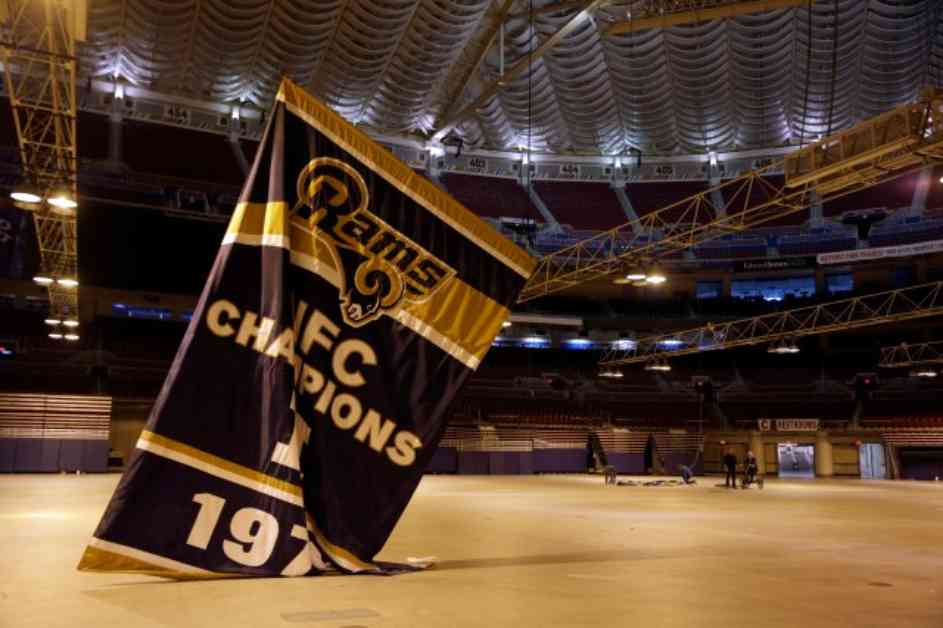St. Louis Resentment Towards Rams Defended by Michelle Smallmon
As the NFL season approaches, the wounds left by the Rams’ departure from St. Louis continue to fester for many locals. Michelle Smallmon, a St. Louis-raised ESPN Radio personality, recently found herself at the center of a heated debate when a caller challenged her decision to distance herself from the Rams franchise. Smallmon, a co-host for the national morning show “Unsportsmanlike” on ESPN Radio, has been vocal about her desire to support a new football team as the void left by the Rams lingers in her heart.
Why the Resentment?
Smallmon’s decision to sever ties with the Rams franchise stems from a deep sense of betrayal and loss that she, along with many other St. Louis natives, experienced when the team relocated to Los Angeles. The caller who challenged her loyalty questioned why she would abandon a team that had simply changed cities, arguing that she should still support the Rams regardless of their location. However, Smallmon’s response shed light on the emotional toll that the Rams’ departure took on the city of St. Louis and its residents.
A Toxic Relationship
In her impassioned defense, Smallmon drew a poignant analogy between her relationship with the Rams and owner Stan Kroenke and a toxic ex-spouse. She likened the Rams’ departure to a public humiliation and betrayal, equating it to a partner who had cheated and disparaged their former significant other. Smallmon emphasized that continuing to support the Rams would be akin to reconciling with an ex who had caused irreparable harm and devastation.
Smallmon’s analogy struck a chord with many listeners and viewers, resonating with those who had similarly felt abandoned and mistreated by the Rams’ relocation. Her comparison highlighted the deep emotional scars left by the departure of the team, underscoring the lasting impact it had on the St. Louis community.
Economic Fallout and Community Bonds
Beyond the emotional turmoil caused by the Rams’ exit, Smallmon also expressed concern for the economic repercussions and job losses that befell the St. Louis region. The departure of the team had far-reaching effects on the local economy, leaving many residents without employment and exacerbating existing hardships. Smallmon’s acknowledgment of these tangible consequences underscored the broader impact of the Rams’ relocation on the community as a whole.
Despite the pain and resentment stemming from the Rams’ departure, Smallmon’s desire to support a new NFL team reflects a yearning for community and camaraderie that she misses as a sports fan. Her willingness to embrace a new franchise speaks to her resilience and determination to move forward from the past grievances inflicted by the Rams’ relocation.
In conclusion, Michelle Smallmon’s defense of her decision to distance herself from the Rams franchise sheds light on the deep-seated resentments that linger in the hearts of many St. Louis sports fans. Her candid reflection resonates with those who have similarly felt the sting of betrayal and abandonment, underscoring the lasting impact of the Rams’ departure on the community. As the new NFL season approaches, Smallmon’s story serves as a reminder of the enduring bonds between sports teams and their fans, as well as the complexities of loyalty and loss in the world of professional sports.


